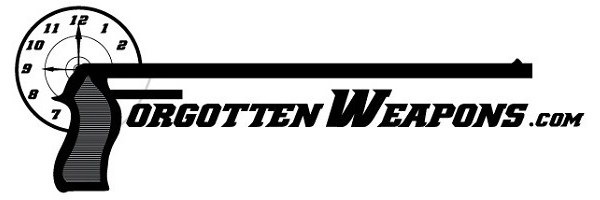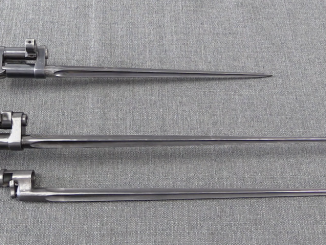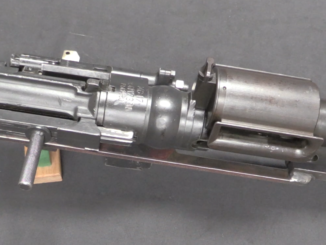Generation War originally came out two years ago as a three-part German television miniseries, and I only found out about it recently. It has been described as a German Band of Brothers, but that misses some of the nuance. The story follows a group of five childhood friends from 1941 until the defeat of Germany in 1945. The five represent a cross-section of German experiences, and include two soldiers (brothers), a singer, a nursing student, and a Jewish tailor.
My Take
Having watched the series nearly straight through, watched the BBC’s short program on the controversy it created, and read a wide variety of other reviews of the series, I will be pretty unapologetic in saying that it is one of the best pieces of war film I think I’ve ever seen. As best as I can tell from my vantage point having never been in the military or personally experienced war, it does a tragically good job of portraying what war does to people. It neither glamorizes nor judges the characters for their actions, it simply shows them going through what actually happens on a personal level. The acting is magnificent, and we see the changes to the characters as happening naturally without being beaten over the head. Between the writing, directing, and acting the characters manage to play roles as archetypes without becoming cliches – no easy task for a film!
On a technical level, Generation War is magnificent. I’m sure there are some mistakes (like the appearance of an MG42 before they should have existed), but they are so minor in context as to be unnoticeable. The set design, lighting, uniforms, and equipment are correct and engrossing down to miniscule levels of detail. The mix of action with dialogue and other character interaction is well balanced and I never found myself drifting despite the series’ 4.5 hour length. Here’s the official trailer:
In short, just go watch it. It’s not a happy story, so plan accordingly. I should also note that the original German title was “Unsere Mütter, Unsere Väter” – “Our Mothers, Our Fathers” in reflection of the director’s goal of stimulating conversation between young Germans today and the disappearing generation who lived this story themselves (and he was very successful in sparking that conversation). It is available both as DVD and as streaming video, in three 1.5-hour episodes:
Other Reviewers
I wanted to start this review with my own take because I think a lot of the other reviews out there are, frankly, wrong and miss the point – and I don’t want to take away form the impact of the series by debating them. So once you’ve seen the series, then click to read more and we’ll look at why the reviewers who disliked this are wrong (sploilers).
Okay, let’s look at some of the complaints people have brought up…
The Characters Meet Up Far Too Often
Yes, it is wildly implausible that these five characters would encounter each other as often as they do in such a wide-ranging story as the entire Eastern Front. Also, it’s implausible that Wilhelm and Friedhelm would be in the same unit. What this complaint misses is the fact that it’s a story. Having the characters meet each other gives us a way to watch how they are changing relative to each other. It’s not a documentary.
The Jewish Friend is Implausible in 1941
Yeah, probably. Again, it’s a story. Having Viktor in the story allows us to see his side of the partisan warfare in occupied Poland and Russia.
The Director is Trying to Absolve Germany of Responsibility for War/Holocaust/Other Atrocities
Did we ever watch the same series? German solider, both Wehrmacht and SS, are clearly shown as being directly responsible for all sorts of horrible things. The film doesn’t try to bring judgement one way or another, it simply shows what happened (I am reminded of Christopher Browning’s Ordinary Men). I think the series does a very good job of not making judgements, and I think that efforts to find them are misguided. What one should do is take this story as a starting point for understanding the behavior of other people in extreme circumstances and for assessing how one ought to behave one’s self.
It Skips Right Over [Stalingrad/Invasion of Poland/Invasion of France/something else]
The specific battles that are involved are really besides the point, as this is a story about human characters and not a history of the war.
The Polish Home Army is Too Antisemitic
Many of the AK units were friendly to Jews. Many were as hateful of them as the worst Nazis and communists. The group Viktor encounters is in the middle. They throw him out for being a Jew, but they also save his life. The fact of the matter is that there weren’t very many good options for European Jews in the 30s and 40s; hating Jews was not something unique to Germany.




The odd part is, it got shredded in the German press for not being polarized enough, the Germans aren’t evil enough, and the other side isn’t heroic in their victory. If you’re looking at German war movies, you probably should try to get your hand on “Die Bruecke” and “Hunde wollt ihr ewig leben”, early attempts at dealing with the subject. So you’d probably go ballistic over the the fake guns/tanks etc, German directors in the 50’s didn’t have many options of getting realistic props.
I am familiar with this phenomenon in some of German presentations and would offer name for it – ‘secondary spasm’. First one was over being defeated. It is well over what is necessary.
Die Brücke (original 1959 version) has pretty realistic equipment, if I remember correctly, for a 1950s war film. Real M4 Sherman tanks and all. It was made early enough that WW2 surplus was still widely available. Special bonus for showing what happens to e person when a Panzershreck is fired in front of him. The 2008 TV movie remake is much inferior, though.
i thought this was very good and well done as well , not as good as the finnish movie “ambush” about bycicle trops
I personally didn’t like “Ambush” that much. The love story just doesn’t sit very well with the war movie scenes. It’s not sappy like, well “Pearl Harbor”, but still I’m not a huge fan of that film. Plus the final combat scene is a little bit too much like action movie for my tastes in a war movie. It also has a one prominent anachronism; the events of the movie take place in July 1941 and the PPSh-41 is featured in many scenes as the personal weapon of the main protagonist. That alone does not make it a bad movie, but I don’t know why they had to use a PPSh-41 when there certainly was no shortage of M31 Suomi SMGs in Finland at the time the movie was made (1999).
Thanks for mentioning the Finnish movie. I didn’t know about that one and will have to get a copy of it.
I am glad to see this trend among Americans to follow on European (specifically German) recent history. It teaches several lessons. First – and foremost – we are all people, no matter what the divide is or has been. Second, it shows tremendous effort Germans put forth to de-Nazify and integrate themselves back to core of European civilization. And finally, it says clearly – war is NOT fun. I hope the learning never stops and people worldwide will be able to communicate past experience to mutual benefit.
Wars are terrible things, the world then was very different to now though not just because of Nuclear weapons or political/racial ideologies, empire, but folks understanding of the world around them and further afield, a different economic base etc so that should provide some hope that such things are to be avoided in future. I traveled round Germany quite a bit around a decade ago, and it was a noticeable part of their culture – Being war apologists, if you will, for their role in particular during the last one under ze Nazis but more generally – Some reluctance to engage in the wider war on terror for example. I did run into a feeling it was old news though, and indeed some neo Nazism which was mainly modern patriotism not particularly linked to wanting a holocaust again or denying it. There was a feeling though Adolf wasn’t all bad, to the indigenous non Jewish population prior to the War specifically, in regards giving Germany back it’s self respect etc. Which while possibly true, was a tad worrying as he was also personally responsible for the nations descent into hell.
Thanks for your response PDB.
The greater issue here is: how much nationalism is enough for nation to exist and where is the border line. I am sure you can trace nationalism in Britain, France, U.S. and other countries. When nationalism is turned into hostile ideology, that’s where the problem comes. All the rest I’d leave on side.
I do not want to fill space with political issues, but as former central Euro, I know Germans and their mind rather well (was fluent in their language too). I have considerable admiration for them, although our nation’s relations might be a bit precarious on certain issues. At the however, if you go along with them, they will include you in their success.
We (USA) are BIG. Russia is BIG. Germany is always surrounded; no sea to shining sea.
Love their firearms and composers etc…
Excellent beer, and brothels also if your into that sort of thing.
I’m sure it is worth watching, I thought the film Downfall was good that was a German production. My favourite film is Das boot, German film – Not that I’m a movie buff, German or otherwise. After the insanity of WW1, and it’s aftermath in Germany specifically the Nazis were probably not a particularly surprising outcome. A lot of the Anti Jewish stuff dated from the 19thc and prior, also it was fairly widespread in Europe. The final solution, wasn’t necessarily an obvious outcome though in 1941. The Nuremberg laws weren’t really a decisive precursor in my opinion, it was losing WW2 when they “told themselves” they weren’t responsible for it particularly the general population might not really had been in on the holocaust i.e. The decision to systematically murder all the Jews of Europe, etc. Doubtless some of them wouldn’t have minded, but it was an act of losing perhaps… So maybe they would have figured we are losing, amongst other reasons to frown on the notion obviously.
great serie, try to watch it in the original german, with subtitles.
On topic of movies….
they are bit tricky in depiction of subject and I know that people typically tend to read too much into them. They are not necessarily historical document; quite often very far from it. They are mainly a form of art.
But on human side of equation and more pertinently to this forum – that is technology displayed in them, they are good and often worthwhile diversion.
I watched it on Netflix. I thought was very well done. The fact that a MP 38/40 ‘s stock unfolds if you push the button in the back was kept a secret from the cast was to bad.
Heh…I noticed that too. 🙂
That makes three of us.
“Unsere Mütter, Unsere Väter” is the grim tale how We Germans jump into the Abyss.
It show a generation enticed by a mad rat catcher from Austria
and how there dreams and hope became a Hell on Earth and in aftermath
Germany has to face for evermore, the guilt of commit the darkest Moments in Mankind History.
in east-europe was reaction “Unsere Mütter, Unsere Väter” extrem negative
consider this production as history falsification by the Germans Government and
the Doku-drama not showing, the real atrocity commit by Wehrmacht and SS Commandos.
And this one of the big problems of this Doku-drama, it glossing over this topic, not showing the real thing!
but let be fair, who want to see this atrocity on TV ? nobody !
On the production
it was made by company “teamWorx” and finance by ZDF and German Government with 14 Millionen Euro.
The original script was re written several times, over 6 year until it found a producer
Original Victor had to return as US soldier at end of war, but this was cut do budget reason and lack of US ww2 equipment.
That was biggest problem to find the right WW2 equipment for Production, what explain the errors in Doku-drama.
They used what they could find, even on Location they look for useable WW2 equipment.
A lot of people here in Russia just don’t understand what this film is about. That’s why they call it “history falsification” and “justification of fascism”. But the critique made the film even more famous.
I recall that in the scene where the Younger Brother first executes a Partisan, the Mauser he used was actually a post-war Yugoslavian M48.
It was still an enjoyable show.
Well, this is actually one of the better German television productions. Though not that great when compared to Vilsmaier’s superior Stalingrad.
Things get a lot worse if you take a look at the more recent “Tannbach”, where they’re depicting Americans as “good” and Russians as “bad”. Oh, and the German conservatives’ “myth” (read: shameless lie) of them “resisting” the Nazis is also depicted in (symbolic) detail. Sure, it all happened that way…
Now, if you want to see something REALLY interesting, have a look at these Finnish war movies:
– Tali-Ihantala 1944 (2007)
http://www.imdb.com/title/tt0378848/
– Rukajärven Tie (1999)
http://www.imdb.com/title/tt0162625/
– Talvisota (1989)
http://www.imdb.com/title/tt0098437/
Tali-Ihantala 1944 is a good docudrama, but a pretty awful movie… It’s episodic structure means that there is really no dramatic arc and the changing main characters are not very interesting. It’s great for weapons and vehicle “porn”, though, with several authentic WW2 tanks and assault guns (including e.g. StuG IIIg and T-26), many of them running. Even the artillery pieces are almost genuine (the muzzle brakes of modernized howitzers were removed digitally).
I watched this movie on ITunes thanks to your recommendation. Yes, we can quibble with firearms accuracy and feasibility of certain scenes, but I thought it was well worth 3+ hours of my life.
Pete